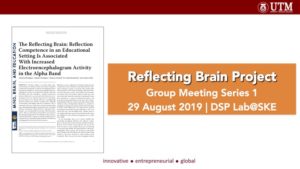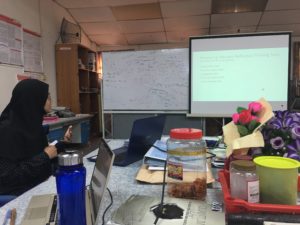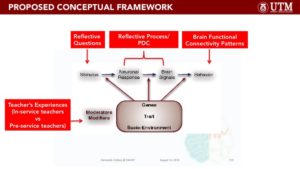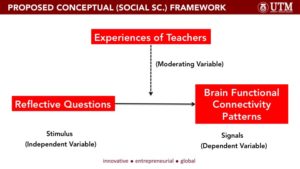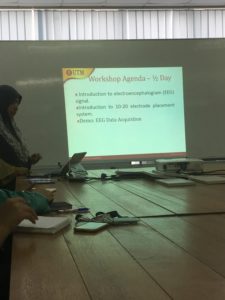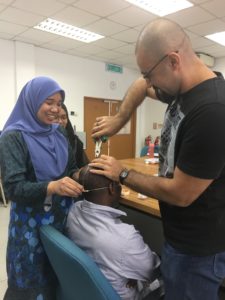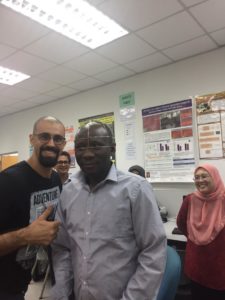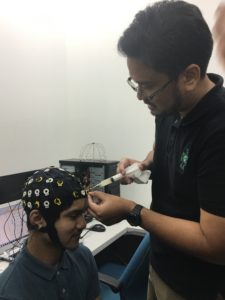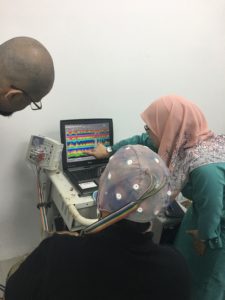I had the opportunity to attend a short course on “Big data analysis of neuroimaging and genetics” which was held on 17 August 2019, at UTMKL together with Dr. Zuri and Taha, his PhD student. Prominent researchers from the area delivered talks that focusing on how data obtained mainly through EEG and fMRI are being analysed.
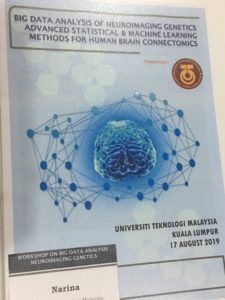
The longer version of the course title
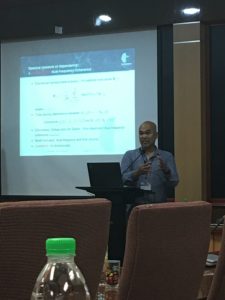
Prof. Ombao delivering his talks
The session started with talks by Prof. Hernando Ombao from King Abdullah University of Science and Technology talks on “Spectral methods for brain connectivity” and “Cross-dependence in multivariate time series”. His lectures covered the basics of brain images and signals as well as the related statistical analysis, which I found to be helpful in visualising my initial research idea. One important aspect I learned is that brain signaling helps in the characterisation and differentiation of brain patterns.
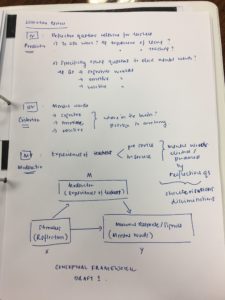
While listening to Prof Ombao’s talks I managed to draft the conceptual framework for Fatini’s PhD project.
This was followed by a talk by AP Dr Anqi Qiu from National University of Singapore (NUS) entitled “Phenotypes, genotypes & voxels: a playground next to a nuclear power plant”.
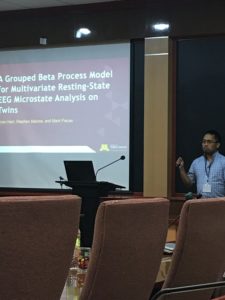
Dr. Fiecas sharing his experiences
The third presenter was Dr. Mark Fiecas from University of Minnesota whose talks entitled “A grouped beta process model for multivariate resting-state EEG microstate analysis on twins” and “Tutorial on fMRI preprocessing and analysis”. Among others, he shared his experience in collecting and analysing EEG and fMRI in studies involving identical and fraternal twins.
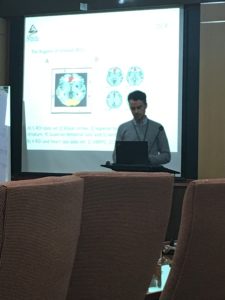
Dr. Cribben illustrating the brain signals
The next presenter was Dr. Ivor Cribben from Alberta School of Business, who talked about “Dynamic functional connectivity for human brain imaging data”. Among all the talks, we could closely relate our current project with Ivor’s presentation especially when he highlighted the task design of his research.
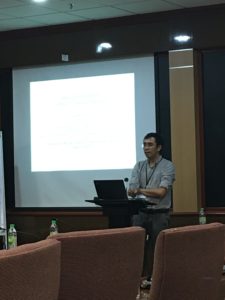
Dr. Ting highliting his points entitled “Deep Learning Methods for Brain Connectivity Networks”
The remaining lectures were delivered by UTM’s very own Dr. Chee-Ming Ting from SKBSK and Dr. David Degras from University of Massachusetts, Boston.
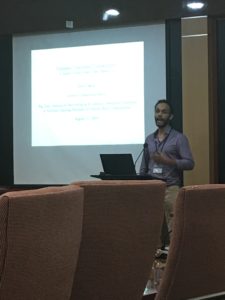
Dr. Degras explaining “Dynamic functional connectivity: A sparse group fused lasso approach”
Overall, it was a great course because it was participant-friendly one. We had the chance to consult the experts and all the talks were lively as the Q&A sessions were very informative. Well, one thing for sure now is having the regret for not venturing in neuropsychology last time….
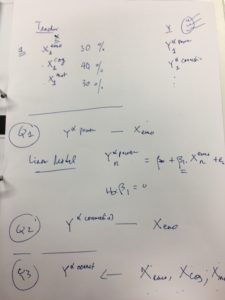
Consulted Prof. Ombao during lunch break and here’s what he suggested….
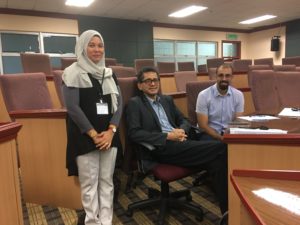
Dr. Zuri with his current PhD student, Taha and his ex-student from Universiti Malaysia Perlis











